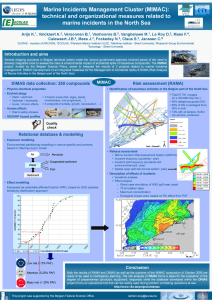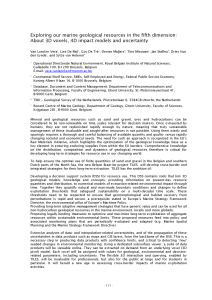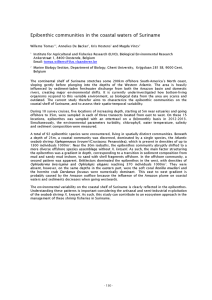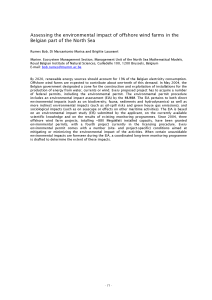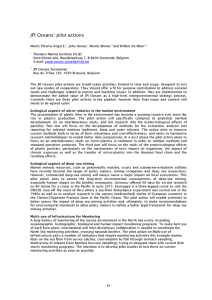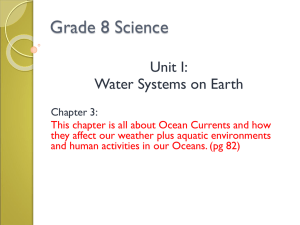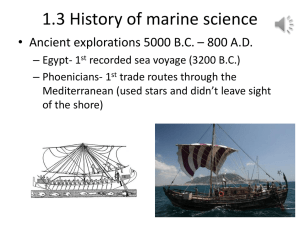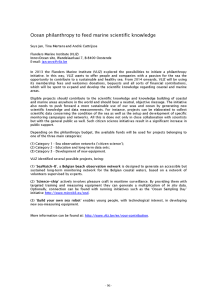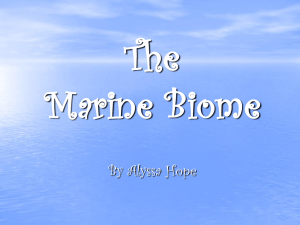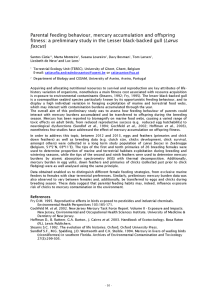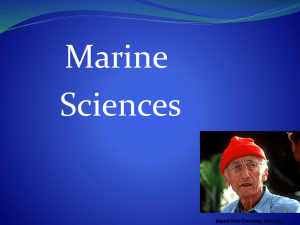A lifetime inspired by the ocean: marine environmental effects on
advertisement
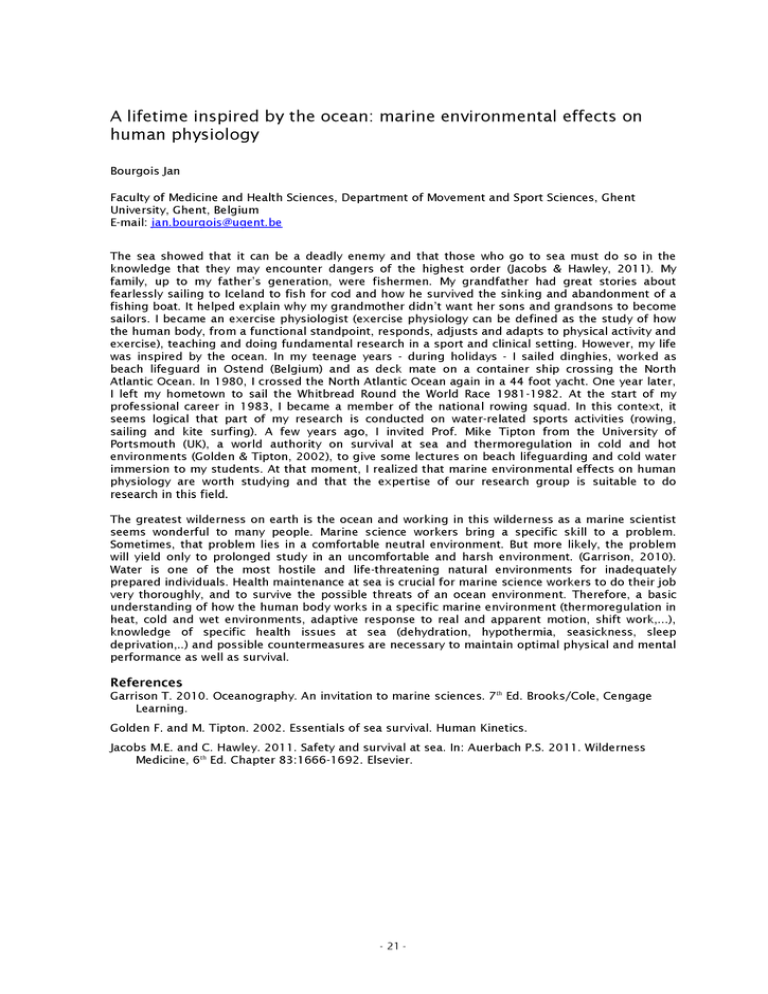
A lifetim e inspired by the ocean: marine environm ental effects on human physiology Bourgois Jan Faculty o f Medicine and Health Sciences, D epartm ent o f M ovement and Sport Sciences, Ghent University, Ghent, Belgium E-mail: ian.bourqois@ uqent.be The sea showed th a t it can be a deadly enemy and th a t those who go to sea m ust do so in the knowledge th a t they may encounter dangers o f the highest ord er (Jacobs & Hawley, 2011). My fam ily, up to my fa th e r’s generation, were fisherm en. My g ra nd fa the r had great stories about fearlessly sailing to Iceland to fish fo r cod and how he survived the sinking and abandonm ent o f a fish in g boat. It helped explain w hy my g ra nd m o th er d id n ’t w ant her sons and grandsons to become sailors. I became an exercise p hysiologist (exercise physiology can be defined as the study o f how the human body, fro m a fu n ctio n a l standpoint, responds, adjusts and adapts to physical a ctivity and exercise), teaching and doing fundam ental research in a sport and clinical setting. However, my life was inspired by the ocean. In my teenage years - during holidays - I sailed dinghies, w orked as beach lifeguard in Ostend (Belgium) and as deck mate on a container ship crossing the North A tla n tic Ocean. In 1980, I crossed the North A tla n tic Ocean again in a 44 fo o t yacht. One year later, I left my hom etown to sail the W hitbread Round the W orld Race 1981-1982. A t the start o f my professional career in 1983, I became a m em ber o f the national rowing squad. In th is context, it seems logical th a t part o f my research is conducted on w ater-related sports activities (rowing, sailing and kite surfing). A few years ago, I invited Prof. Mike T ipto n from the U niversity o f Portsm outh (UK), a w orld a u th o rity on survival at sea and th erm oreg ula tion in cold and hot environm ents (Golden & T ipton, 2002), to give some lectures on beach lifeguarding and cold w ater im m ersion to my students. A t th a t m om ent, I realized th a t marine environm ental effects on human physiology are w orth studying and th a t the expertise o f our research group is suitable to do research in th is field. The greatest wilderness on earth is the ocean and w orking in th is w ilderness as a marine scientist seems w onderful to many people. Marine science workers bring a specific skill to a problem . Sometimes, th a t problem lies in a com fortable neutral environm ent. But more likely, the problem w ill yield o nly to prolonged study in an uncom fortable and harsh environm ent. (Garrison, 2010). Water is one o f the m ost hostile and life-threatening natural environm ents fo r inadequately prepared individuals. Health maintenance at sea is crucial fo r marine science w orkers to do th e ir jo b very th orou g hly, and to survive the possible threats o f an ocean environm ent. Therefore, a basic understanding o f how the human body w orks in a specific marine environm ent (therm oregulation in heat, cold and w et environm ents, adaptive response to real and apparent m otion, s h ift w ork,...), knowledge o f specific health issues at sea (dehydration, hypotherm ia, seasickness, sleep deprivation,..) and possible counterm easures are necessary to m aintain o ptim al physical and mental perform ance as well as survival. References Garrison T. 2010. Oceanography. An invitation to marine sciences. 7th Ed. Brooks/Cole, Cengage Learning. Golden F. and M. T ipto n. 2002. Essentials o f sea survival. Human Kinetics. Jacobs M.E. and C. Hawley. 2011. Safety and survival at sea. In: Auerbach P.S. 2011. W ilderness Medicine, 6th Ed. Chapter 83:1666-1692. Elsevier. - 21 -
